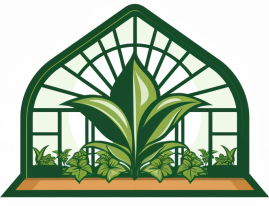
Imagine stepping into your own little sanctuary, surrounded by lush greenery, vibrant flowers, and the sweet scent of nature. A greenhouse offers exactly that – an oasis where you can cultivate your own private world of plants and flowers. Not only does owning a greenhouse provide a tranquil space, but it also has a multitude of advantages. From extending your growing season to protecting delicate plants from harsh weather conditions, a greenhouse is a haven for any plant enthusiast. Dive into the world of greenhouse ownership and unlock the countless benefits it has to offer.
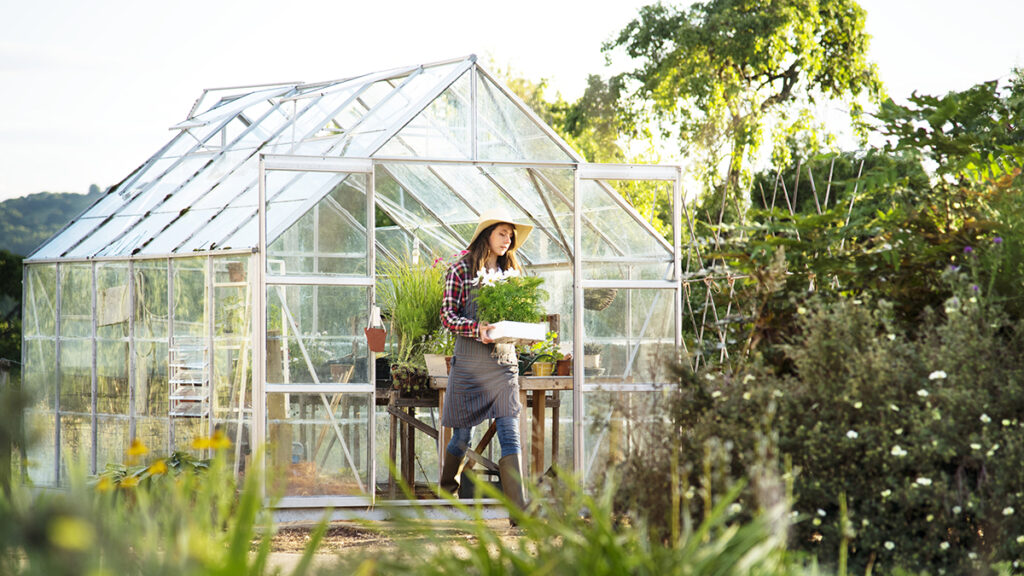
This image is property of www.mibor.com.
Create Ideal Growing Conditions
Temperature Control
One of the main advantages of having a greenhouse is that it allows you to have complete control over the temperature inside. By regulating the temperature in your greenhouse, you can create the ideal conditions for your plants to grow and thrive. This is especially beneficial in areas with extreme weather conditions, where plants may struggle to survive outdoors. Whether you need to raise the temperature during colder months or cool it down during hot summer days, a greenhouse provides you with the ability to tailor the climate to suit your plants’ specific needs.
Humidity Control
In addition to temperature control, a greenhouse allows you to regulate the humidity levels. Many plants require high humidity to flourish, and a greenhouse offers the perfect environment for them. By adjusting the humidity inside your greenhouse, you can mimic the natural conditions that your plants thrive in, whether they are tropical plants or ones that require a drier environment. This control over humidity ensures that your plants receive the optimal growing conditions, promoting healthy growth and minimizing the risk of diseases caused by excessive or inadequate moisture levels.
Light Control
Light is a vital factor in the growth and development of plants. In a greenhouse, you have the opportunity to manipulate and optimize the amount of light your plants receive. You can use shading techniques to reduce the intensity of sunlight during the hottest part of the day, preventing your plants from getting scorched. Furthermore, you can install artificial lighting to supplement natural sunlight, allowing you to extend the growing season and promote faster growth. This level of light control ensures that your plants receive adequate light, even during darker seasons or areas with limited sunlight.
Extended Growing Season
Protection from Cold and Frost
With a greenhouse, you can shield your plants from the detrimental effects of cold weather and frost. As the temperature drops outside, your greenhouse provides a protective barrier, preventing your plants from being damaged or killed by frost. This protection allows you to start planting earlier in the season when it would still be unsafe to plant directly in the ground. Similarly, it enables you to continue growing plants well into the fall or even winter when the outdoor conditions become too harsh for most crops. This extended growing season opens up a whole new world of possibilities for gardeners, allowing them to enjoy fresh produce all year round.
Early Planting and Late Harvesting
When you have a greenhouse, you have the luxury of starting your plants early in the season, giving them a head start before transplanting them outside. By starting seeds indoors and nurturing them in your greenhouse, you can establish strong and healthy plants that will have a better chance of thriving when they are finally placed in the ground. Additionally, a greenhouse provides the opportunity for late-season harvesting. You can continue growing certain plants beyond their usual harvest time, maximizing your yield and ensuring a plentiful supply of fresh vegetables or flowers throughout the year.
Protection from Pests and Diseases
Physical Barrier
One of the major advantages of having a greenhouse is the ability to create a physical barrier between your plants and potential pests. Greenhouse structures effectively keep out pests such as insects, rodents, and other small animals that can wreak havoc on your garden. This protection is particularly valuable when you consider the damage that pests can cause to crops, leaving you with an unsightly or diminished yield. By keeping pests at bay, a greenhouse provides a safe haven for your plants, allowing them to grow undisturbed and reducing the need for harmful pesticides.
Controlled Environment
In a greenhouse, you can have precise control over the environment, which helps prevent and manage the risk of diseases. By maintaining proper ventilation and airflow, you can reduce the likelihood of fungal infections and mold growth. Additionally, the controlled environment limits the spread of plant diseases, as there are fewer opportunities for pathogens to enter and affect your plants. This level of control significantly reduces the need for potentially harmful chemical treatments and promotes a healthier and more sustainable gardening approach.
Reduced Chemical Usage
The protective environment of a greenhouse, combined with the controlled conditions, reduces the reliance on chemicals for pest and disease management. When plants are grown outdoors, there is a higher risk of pest infestations and diseases, which often necessitate the use of chemical pesticides and fungicides to control and eliminate the problem. However, in a greenhouse, with the reduced likelihood of pest and disease outbreaks, you can rely less on chemical interventions and instead focus on natural and organic methods of plant care. This not only benefits the environment but also provides you with healthier and safer produce.
Increased Plant Variety
Ability to Grow Exotic Plants
A greenhouse enables you to expand your plant variety and grow plants that would otherwise struggle to survive in your climate. By creating a controlled environment, you can cultivate exotic plants that are not native to your region, providing a unique and diverse collection of flora in your garden. Whether it is tropical plants, rare orchids, or delicate herbs, a greenhouse opens up a world of possibilities and allows you to indulge in the wonders of nature from different corners of the globe. This ability to grow exotic plants is not only aesthetically pleasing but also enriches your gardening experience.
Year-round Production
Another advantage of having a greenhouse is the ability to produce crops all year round. Regardless of the season, you can continue growing and harvesting various plants within the sheltered environment of your greenhouse. This year-round production ensures a constant supply of fresh herbs, vegetables, or flowers, eliminating seasonal limitations. Whether it’s a snowy winter or scorching summer outside, you can still enjoy the pleasures of gardening and reap the rewards of your efforts throughout every season.
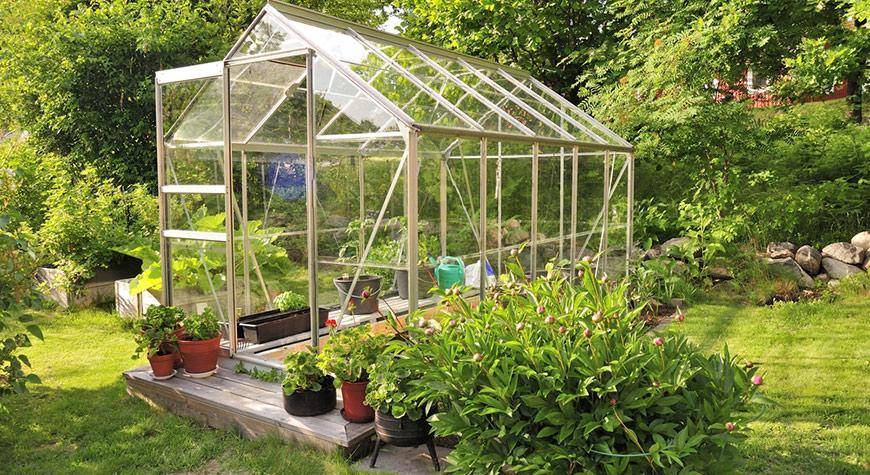
This image is property of www.gardenweasel.com.
Improved Crop Quality
Consistent Environmental Conditions
In a greenhouse, you can maintain consistent environmental conditions, providing your plants with the stability they need to thrive. Fluctuations in temperature, humidity, and light can often stress plants and adversely affect their growth. However, with the ability to control these factors in a greenhouse, you can eliminate those stressors and create a stable, optimal environment for your crops. This consistency results in healthier plants that are less susceptible to diseases, produce higher yields, and exhibit improved overall quality.
Controlled Nutrient Levels
By having a greenhouse, you have better control over the nutrient levels that your plants receive. Excessive rainfall or poor soil conditions can lead to nutrient depletion in outdoor gardens, affecting plant growth and productivity. However, in a greenhouse, you can customize the nutrient levels based on the specific needs of your plants. With precise control over the fertilizers and soil amendments, you can ensure that your plants have access to the essential nutrients required for optimal growth. This control over nutrient levels contributes to improved crop quality and a more successful gardening experience.
Water Conservation
Efficient Water Usage
Water conservation is a growing concern, and having a greenhouse allows you to be more efficient in your water usage. By incorporating methods such as drip irrigation or automated watering systems, you can deliver water directly to the plant roots, minimizing water waste due to evaporation or runoff. Additionally, the controlled environment of a greenhouse reduces the need for excessive watering, as the plants are protected from external drying factors, such as strong winds or intense sunlight. With careful water management, you can ensure that your plants receive the necessary hydration while minimizing your overall water consumption.
Reduced Water Loss
A greenhouse provides an enclosed space that helps retain moisture and reduce water loss. Unlike open gardens where water can quickly evaporate, a greenhouse’s structure helps create a microclimate that retains humidity. This lessens the need for additional watering, as the moisture within the greenhouse is better preserved. Additionally, the reduced exposure to external elements, such as wind, further minimizes water loss through evaporation. By utilizing the greenhouse’s ability to retain moisture, you can conserve water and maintain an environmentally-friendly approach to gardening.
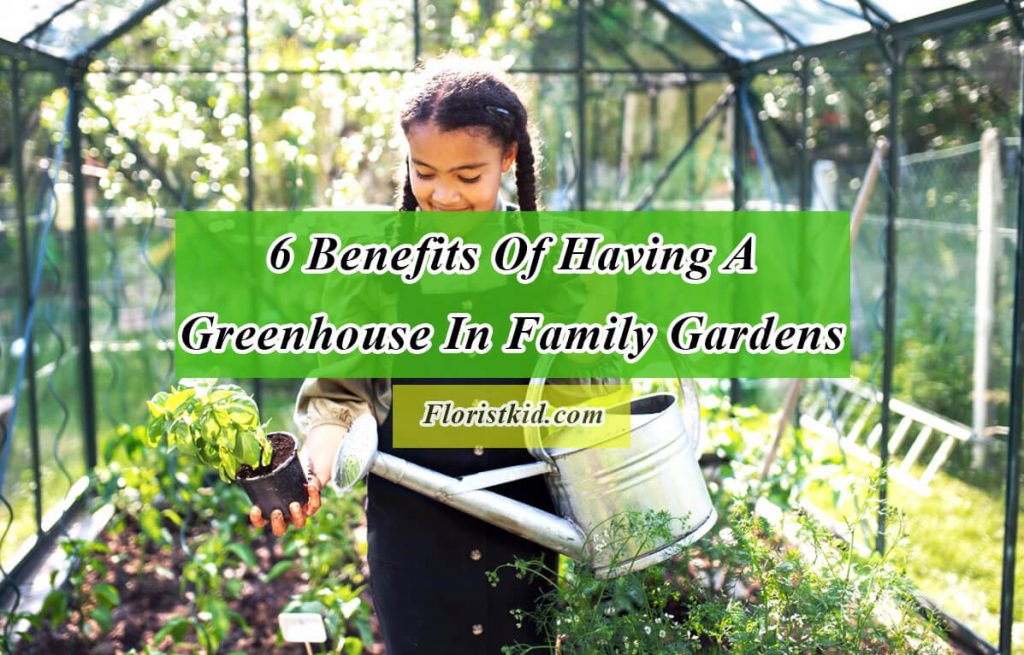
This image is property of floristkid.com.
Energy Efficiency
Passive Solar Heating
Greenhouses are designed to take advantage of passive solar heating, harnessing the sun’s energy to warm the interior without the need for additional heating systems. The transparent panels of a greenhouse trap sunlight, which then gets absorbed by the plants and the greenhouse structures. This absorbed heat effectively warms the air inside during colder periods, creating a favorable environment for the plants. By utilizing passive solar heating, you can reduce your reliance on external heating sources, lower energy costs, and contribute to a more sustainable and environmentally-friendly gardening practice.
Natural Light Utilization
A greenhouse maximizes the utilization of natural light, minimizing the need for artificial lighting during daylight hours. The transparent panels of the greenhouse allow sunlight to enter, creating a well-lit environment beneficial for plant growth. This reliance on natural light not only reduces energy consumption but also provides plants with the full spectrum of light they require. Natural sunlight enhances photosynthesis, resulting in healthier and more robust plants. By capitalizing on natural light, a greenhouse offers an energy-efficient solution for year-round gardening.
Opportunity for Organic Gardening
Reduced Exposure to Pesticides
One of the key advantages of owning a greenhouse is the reduced need for pesticides. Greenhouse structures serve as a physical barrier that prevents pests from infiltrating the enclosure, minimizing the risk of infestation. As a result, you can rely less on chemical pesticides to control pests and diseases. This reduction in pesticide usage leads to a safer and healthier gardening experience and ensures that you can enjoy fresh and pesticide-free produce straight from your greenhouse.
Control Over Soil Quality
In a greenhouse, you have complete control over the quality of the soil used to grow your plants. Unlike outdoor gardens, where the soil composition may vary and be affected by external factors, a greenhouse allows you to create and maintain ideal soil conditions. You can tailor the soil to match the specific needs of your plants, ensuring optimal nutrition and drainage. This control enables you to cultivate a thriving and healthy garden, free from potential soil-related issues such as poor fertility or contamination. By having full control over the soil quality, you can confidently practice organic gardening and promote sustainability in your greenhouse.
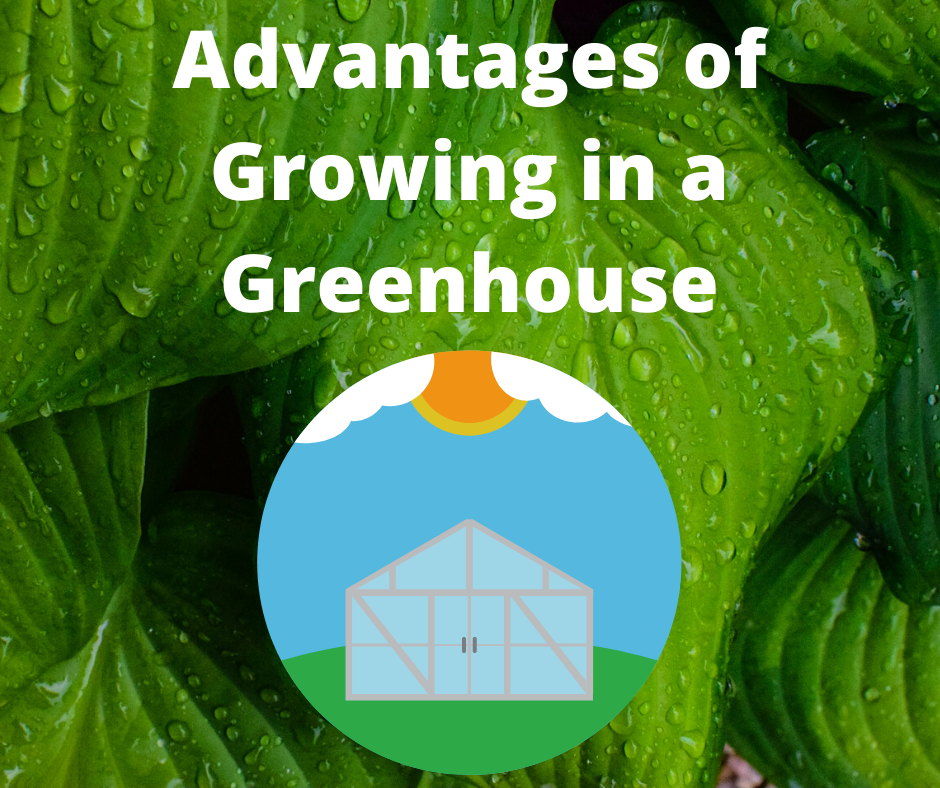
This image is property of www.gothicarchgreenhouses.com.
Year-round Hobby Gardening
Recreational Enjoyment
Having a greenhouse provides a year-round hobby that offers hours of therapeutic and enjoyable gardening activities. Regardless of the weather or the time of year, you can immerse yourself in the beauty of nature and indulge in your passion for plants. Whether it’s sowing seeds, tending to young seedlings, or simply being surrounded by lush greenery, gardening in a greenhouse offers endless opportunities for relaxation and rejuvenation. It becomes a recreational sanctuary where you can escape the stresses of daily life and find solace in the joy of nurturing plants.
Continuous Gardening Experience
The beauty of a greenhouse lies in its ability to provide a continuous gardening experience throughout the year. With the extended growing season and the controlled conditions, you never have to put your gardening tools away. Instead, you can embark on a journey of continuous gardening, with a constant rotation of planting, tending, and harvesting. The year-round productivity of a greenhouse ensures that there are always new plants to care for, new projects to undertake, and new discoveries to be made. This continuous gardening experience keeps your passion for gardening alive and allows you to expand your knowledge and skills as a gardener.
Sustainable Food Production
Local and Fresh Produce
Owning a greenhouse allows you to produce your own local and fresh produce without relying on grocery stores or long-distance transportation. The ability to grow fruits, vegetables, and herbs right in your own backyard or even on a balcony promotes a sustainable and eco-friendly approach to food production. By eliminating the need for extensive transportation and preserving the freshness of your harvest, you can enjoy the benefits of locally sourced and nutritious food. Furthermore, the increased control over growing conditions ensures that your produce is free from harmful chemicals and additives, providing you with a healthier and safer food source.
Reduced Carbon Footprint
Growing food in a greenhouse significantly reduces your carbon footprint when compared to commercially produced food. By eliminating or reducing the need for transportation, packaging, and storage associated with store-bought produce, you contribute to less greenhouse gas emissions. Additionally, the controlled environment of a greenhouse allows for better resource management, including water and energy usage. By adopting sustainable practices within your greenhouse, such as water conservation and energy-efficient techniques, you further contribute to environmental sustainability. The reduced carbon footprint associated with greenhouse gardening makes it a responsible choice for conscious individuals looking to make a positive impact on the planet.
In conclusion, owning a greenhouse offers a multitude of benefits for gardening enthusiasts. From creating ideal growing conditions to extending the growing season and protecting plants from pests and diseases, a greenhouse provides the perfect environment for healthy and bountiful harvests. With increased plant variety, improved crop quality, and enhanced water and energy efficiency, gardening in a greenhouse promotes sustainable and organic practices. Furthermore, the year-round hobby gardening experience, the opportunity for local and fresh produce, and the reduced carbon footprint make greenhouse ownership an attractive option for individuals seeking a fulfilling, environmentally-friendly, and self-sufficient gardening journey. So consider investing in a greenhouse to unlock a world of possibilities and enjoy the countless advantages it offers in nurturing your green thumb.
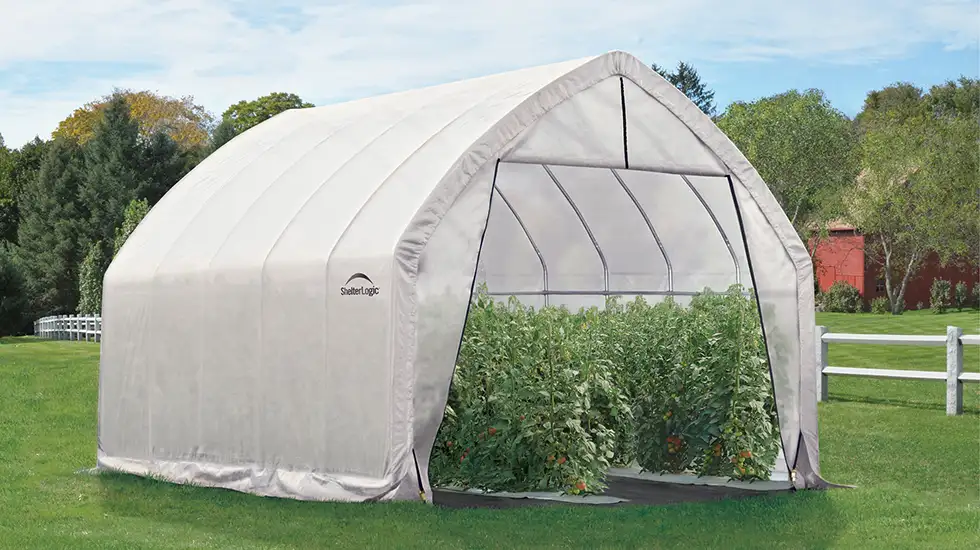
This image is property of www.shelterlogic.com.
